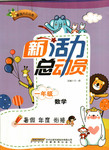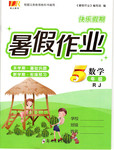题目内容
Everyone needs friends. Friends bring us happiness and hope in our lives. But the ability to make friends changes from person to person. To some people, making friends is easy, and to others it’s very difficult.Making friends is a skill, and the first thing is to know how to get on with others.
If you have trouble in making friends, maybe I can tell you how to do it.
l Realize your own good points. You have skills and talents(才能) that others will like.
l Believe that you are a good person and have something nice to share with others.
l Be humourous. Learn to laugh at yourself and your weakness. Remember to smile at others.
l Respect(尊敬) the others. Everyone has his own idea. Learn how to listen to others’ ideas without trying to make them accept(接受) yours.
l Be kind. If you are kind to others, they will usually be kind to you. There are hundreds of little things you can do to show your kindness. Open the door for someone. Wave to a friend and so on.
l Don’t complain(抱怨). Learn to accept what you can’t change, and work hard to change what you can. No one is willing to hear your complaints all the time.
l Never give up. Even if you are faced with some closed-minded people, never give up. And try to find someone who will understand you.
【小题1】 Why do we need friends according to the passage? __________.
| A.Friends can do everything for us | B.Friends can bring us happiness |
| C.Friends accept our ideas all the time | D.Without friends, we could not live |
A. To help others B. To smile to others
C To get on with others D. To listen to others’ complaints
【小题3】 Which of the following shows a sense of humour?_____________.
| A.Opening the door for someone |
| B.Complaining to others all the time |
| C.Laughing at ourselves and our weakness |
| D.Finding someone who will understand us |
| A.Five | B.Seven | C.Nine | D.Eleven |
略

 新活力总动员暑系列答案
新活力总动员暑系列答案 龙人图书快乐假期暑假作业郑州大学出版社系列答案
龙人图书快乐假期暑假作业郑州大学出版社系列答案
|
broadcast1/'brɔ:dkɑ:st||ˈbrɔdˌkæst/n[C] a programme on the radio or on television: a radio news broadcast | live broadcast ( = a programme that you see or hear at the same time as the events are happening) broadcast2 v past tense and past participle, broadcast 1 [ I,T] to send out radio or television programmes: The interview was broadcast live across Europe. 2 [T] to tell something to a lot of people: There was no need to broadcast the fact that he lost his job. broadcaster /ˈbrɔːdkɑːstə || ˈbrɔːdkæstər/ n [C] |
curious/ ˈkjʊəriəs || 'kjur-/ adj 1 wanting to know about something: When I mentioned her name everyone was curious. | [ +about] I’m incurious about this book she's supposed to be writing. |curious to see/hear/know etc: Mandy was curious to hear what Peter had to say himself.—opposite INCURIOUS 2 strange or unusual: a curious noise coming from the cellar | curious that It's very curious that she left without saying goodbye. curl1 /kɜ:l|| kɚrl/ n 1[C] a small mass of hair |
|
flask / flɑ:sk || flæsk/n [C] I BrE a special type of bottle that you use to keep liquids either hot or cold, for example when travelling 2 a flat bottle usually used to carry alcohol 3 a glass bottle with a narrow top, used in a LABORATORY flat1/ flæt / adj flatter, flattest 1▶ SURFACE◀ smooth and level, without raised or hollow areas, and not sloping or curving: a flat-bottomed boat |a perfectly flat sandy beach | flat as a |
pollute / pə'lu:t/ v [T] 1 to make air, water, soil etc dangerously dirty and not suitable for people to use: beaches polluted by raw sewage | industrial emissions that pollute the air 2 pollute sb’s mind to give someone immoral thoughts and spoil their character: fears that Lawrence's novels would pollute young minds--polluted adj: polluted rivers--polluter n [C] pollution / pəˈlu:ʃn /n [U] 1 the process of making |
1.The pronunciation of the word "broadcast" is ____ or/ˈbrɔdˌkæst /.
A. /'brɔ:dkɑ:st/ B. /'brəud'sɑ:st/ C. /bræd'kɔst/ D. /'bru:dkɑ:st/
2.The word"____ "can be used as an adjective (形容词).
A. pollute B. pollution C. curious D. curiously
3.Which of the following is a flask?




A. B. C. D.
4. The word "pollute" means "______".
A. to tell something to a lot of people B. wanting to know about something
C. a programme on the radio or on TV D. to make air. water, soil, etc dirty
5.These texts are probably from ______.
A. a magazine B. a dictionary
C. a newspaper D. an advertisement